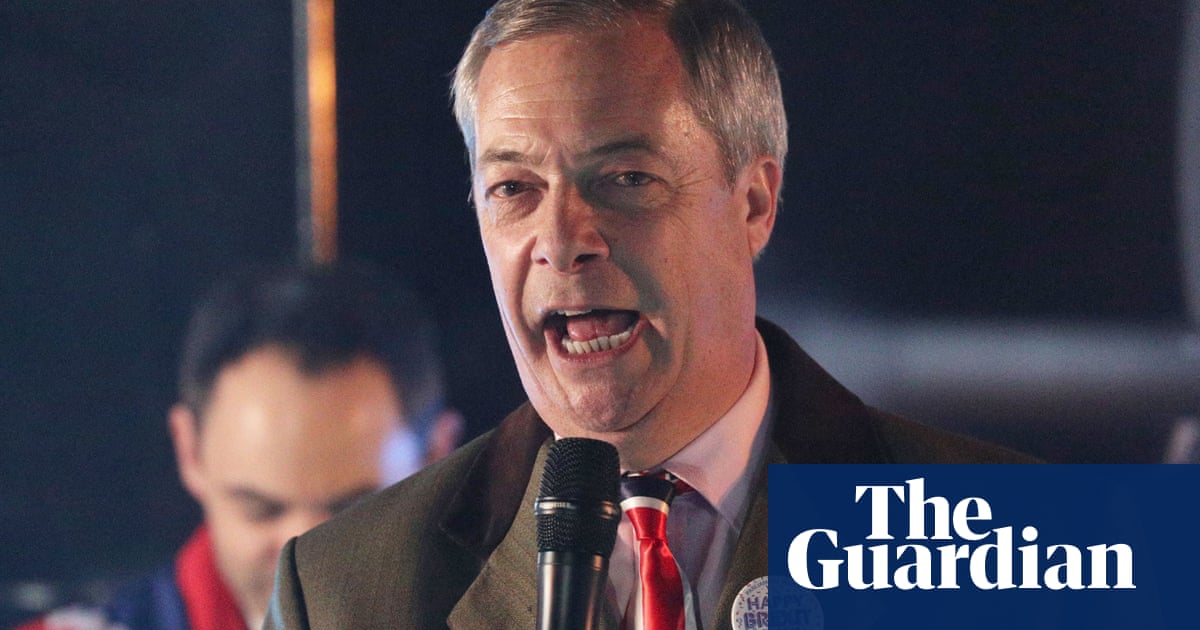BBC writes to Farage to apologise over Coutts bank account report - 4 minutes read

The BBC has written to Nigel Farage to apologise for its reporting of the closure of the former Ukip leader’s Coutts bank account.
The broadcaster reported earlier this month that the private bank had closed the account because he was no longer sufficiently wealthy to hold one.
Its headline read: “Nigel Farage bank account shut for falling below wealth limit,” while the text of the story said this was what the BBC had “been told” – usually meaning the claim was from a source whose anonymity the broadcaster has chosen to protect.
Farage had said he was lodging a formal complaint over the BBC’s reporting. While he had initially focused on the political considerations he said were behind Coutts’ decision to shut his account, the BBC’s subsequent story shifted the spotlight on to his financial affairs.
Using a subject access request, he later obtained evidence that suggested both factors were considered by the bank’s bosses.
In a statement issued on Monday, the BBC said: “Because of this evidence, we have since changed the headline and the copy on the original online article about his bank account being shut for falling below the wealth limit to reflect that the claim came from a source and added an update to recognise the story had changed.
“We acknowledge that the information we reported – that Coutts’ decision on Mr Farage’s account did not involve considerations about his political views – turned out not to be accurate and have apologised to Mr Farage.”
The politician, who now works for GB News, told the channel on Monday that the BBC’s director general, Tim Davie, had sent him “an acknowledgment” and that the BBC’s chief executive of news and current affairs, Deborah Turness, would be writing to him.
Later in the day, the BBC’s business editor, Simon Jack, tweeted: “The headline on the Farage story has been clarified and an update posted. It should have been clearer at the top that the reason for Mr Farage’s account being closed was commercial was what a source told the BBC. That has been corrected.
“The information on which we based our reporting on Nigel Farage and his bank accounts came from a trusted and senior source. However, the information turned out to be incomplete and inaccurate. Therefore I would like to apologise to Mr Farage.”
Britain’s biggest banks were due to be summoned to a meeting with the City minister after he raised “significant concern” over the closure of Farage’s bank account with Coutts.
Andrew Griffith was due to send a letter to the bosses of 19 banks including Barclays, Lloyds and NatWest warning that the government was prepared to “take the action necessary” to protect freedom of speech.
skip past newsletter promotionSign up to First EditionArchie Bland and Nimo Omer take you through the top stories and what they mean, free every weekday morningPrivacy Notice: Newsletters may contain info about charities, online ads, and content funded by outside parties. For more information see our Privacy Policy. We use Google reCaptcha to protect our website and the Google Privacy Policy and Terms of Service apply.after newsletter promotionHe has asked for a roundtable discussion with the banks at the earliest opportunity for assurances that they would ensure customers “can access payment accounts without fear of being de-banked for their lawful expression”.
The Conservative MP Jacob Rees-Mogg said there were now questions to be asked about the position of the head of NatWest, Alison Rose, who issued a public statement last week and wrote a letter to Farage apologising for the way Coutts, a NatWest subsidiary, had handled its decision to cut ties with the Brexit campaigner.
“If you cannot trust your bank to keep your secret, who can you trust?” said the MP, who referred to suggestions that Rose was the source of the BBC’s reporting.
“Even public figures should be able to rely on their doctor and their banker to keep confidential the exchanges they have. If Dame Alison has broken this, she must go, and therefore she must answer the question: ‘Was she the source for the BBC?’ Has she in fact landed the BBC in the minestrone?”
This article was amended on 25 July 2023. An earlier version described Deborah Turness as the BBC’s chief executive; to clarify, she is the CEO of BBC News and current affairs.Source: The Guardian
Powered by NewsAPI.org